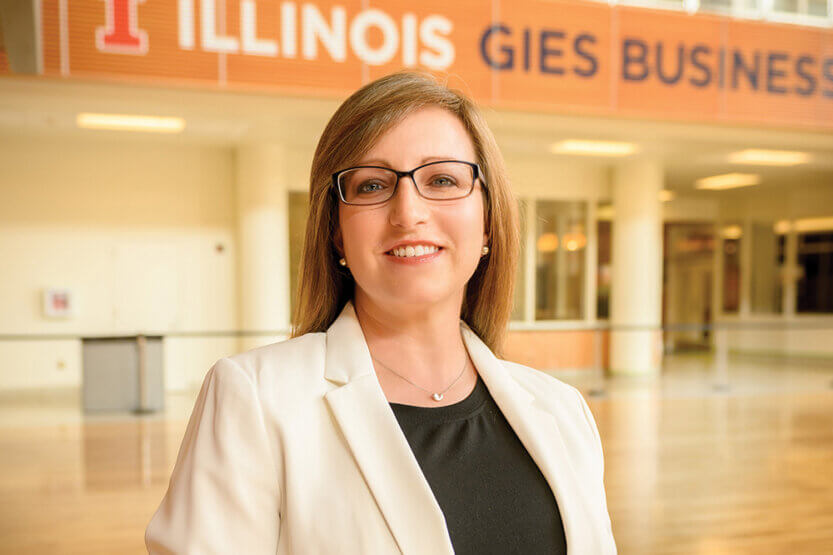In Class: Ethical Strategist
 Gies College of Business professor Elizabeth Luckman teaches business ethics at the University of Illinois Urbana-Champaign.
(Image by Fred Zwicky)
Gies College of Business professor Elizabeth Luckman teaches business ethics at the University of Illinois Urbana-Champaign.
(Image by Fred Zwicky) I teach a required undergraduate class in business dynamics. Students engage in a complex, very cool computer simulation, running one of six companies making sensors and all competing against each other. There are four functions: research and development, marketing, production and finance. You make decisions in these four functions to make a profit. You focus on the sustainability of the business as well. The simulation is designed for senior strategy majors. We give it to sophomores who’ve never taken a business class.
The students get so frustrated. They want so badly for us to just tell them how to do it. We tell them, “This is going to be painful.” The ones who do best are the ones who collaborate with their teammates and search for answers. At the beginning, they’re saying, “You’ve got to be kidding me. I’m never going to learn this simulation.” By the end, they’re, like, “I actually learned about this.” Watching them fail—and learn from failure—is, for me, the best part of the class.
I teach a core graduate class in leadership and teams online, with two other faculty members, instructional designers, teaching assistants and graders. We typically have between 800 and 1,000 students. I’ve had people enrolled who are 25 years old. I’ve had people who are 75. People who are stay-at-home moms, people who are career transitioning, people who are looking to grow in their current jobs. Every industry represented. Lots of countries and cultures represented.
The world continues to change very quickly, and we’re interconnected in ways that we never have been before. We’re facing issues in areas like big data, privacy and cybersecurity. So, we must ask, “What is ethical?” That is a fundamental question in whatever we do.
Having some understanding of philosophy is powerful, and I find value in Aristotle. It’s about finding the golden mean of moral virtues. It’s about how we practice being our most temperate, so we are not falling to virtue or to vice, not falling into one end or the other of the spectrum.
We have to be curious. We have to be willing to connect. We have to be willing to fail. Then we can face whatever challenges come our way. We have to feel good about what we’re doing. When we don’t, that’s when we make unethical decisions. It is really about flourishing. About happiness, well-being. Though when those words come up in business, the reaction can be, “I don’t think you want to say that. That’s a bit squishy for us.”
Edited and condensed from an interview conducted on June 17, 2023

